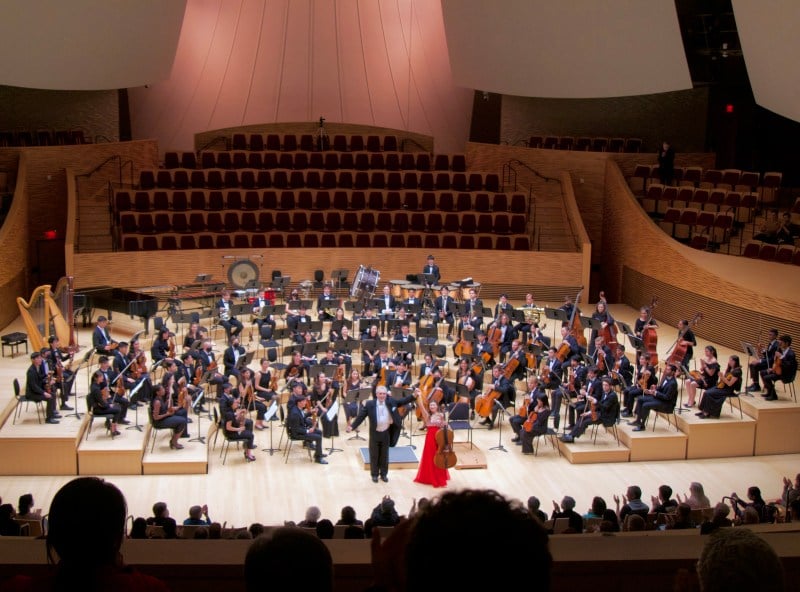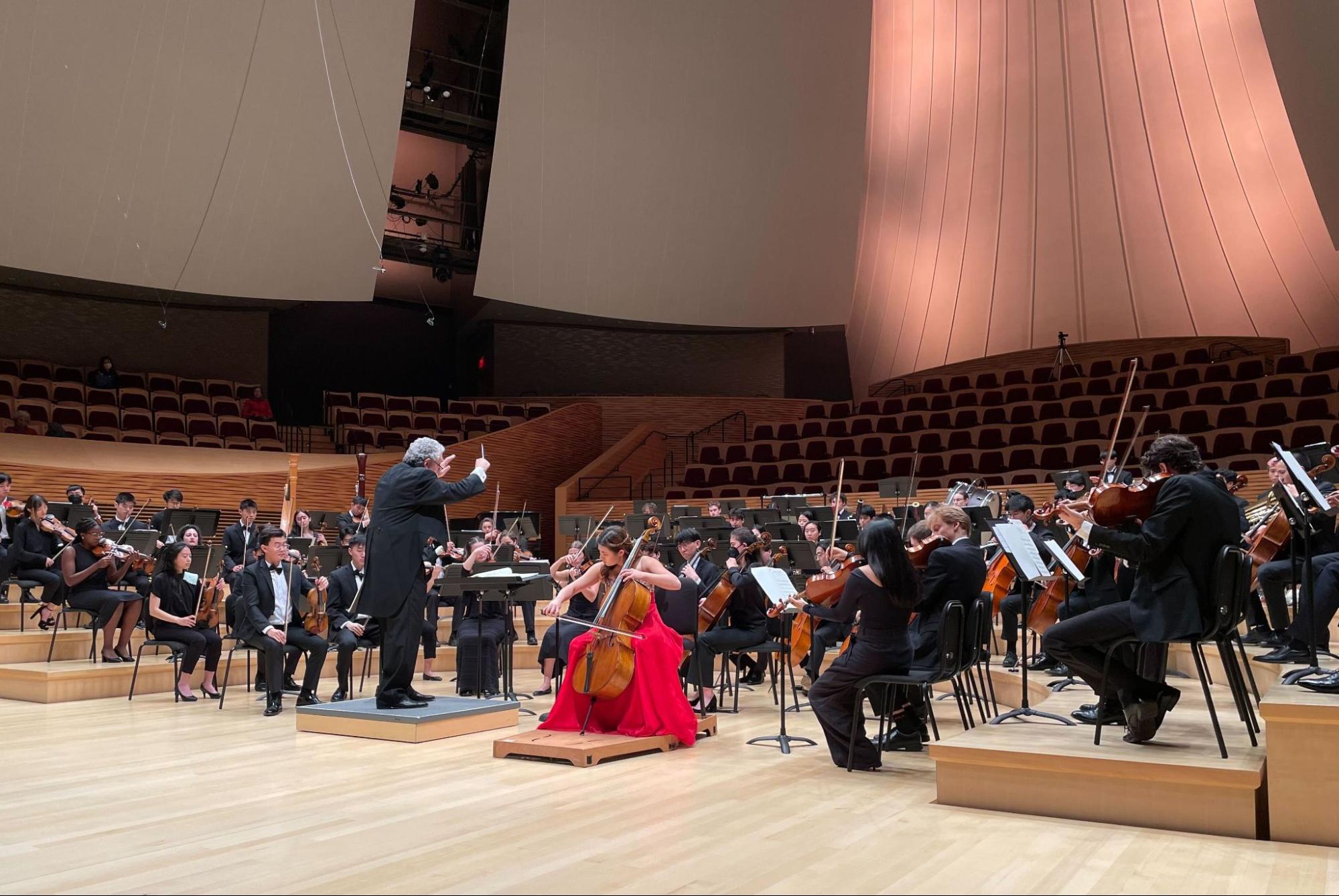On Friday and Sunday, the Stanford Symphony Orchestra delivered its Fall Concert at the Bing Concert Hall, with a program featuring cello soloist Jessica Lee ’24 and American composers such as Michael Abels and Lukas Foss. Most notably, the performance dazzled the audience with near-flawless renditions of Abels’ thought-provoking piece “Global Warming” and the classic Cello Concerto by Edward Elgar.
The highlight of the program was undeniably the Concerto for Cello and Orchestra in E Minor, Op. 85 composed by Edward Elgar. Featured soloist and winner of the 2022 Concerto Competition, Lee took the audience’s breath away with her execution of the timeless classical masterpiece.
Elgar was one of the most celebrated English composers of the late Romantic period, most well-known for his more optimistic works such as the Enigma Variations and Salut d’Amour. Among his acclaimed pieces, the weighty and introspective Cello Concerto seems like an anomaly. Composed shortly after World War I, the concerto teems with agony — a sentiment that can be taken to represent the losses due to the war and the old European way of life.
Lee expressed these emotions masterfully. Breaking the silence with a forceful E minor chord followed by a heavily bowed-out melody, Lee led the audience onto a path of sighs and twists and turns until landing on a booming low E that introduced the melancholic orchestra chords. She truly became one with her instrument and the music: audience members in the front rows could see her breathe at the initiation of every phrase. Though not written by her, each note was rendered hers through her movements.
The low voice of the cello wailed like one grieving after years of pain, carrying through the concert hall — no easy feat given the low register of the instrument. Each sound was masterfully controlled by Lee. Each repetition of the motifs was infused with new meaning: at times a cry for help, a secret whisper or an introspection of one’s life.
Sometimes the cello led the ensemble in what sounded like major declarations. Other times, with its quick running notes, it battled against the overwhelming current of strong, legato sounds from the orchestra — what, to me, represented the inevitable.
I found a continuous sense of searching in the ascending notes throughout the piece. For peace with oneself, perhaps. Did the protagonist attain it? The concerto concluded on a series of militant minor chords whose tensions showed no sign of resolution.

The piece preceding the concerto, “Global Warming,” was equally impressive with its storytelling. Composed around the fall of the Berlin Wall, the piece did not limit itself to the environmental idea of global warming. In fact, Abels composed the piece to convey his hope for democracy worldwide (the “warming” of global democracy and human rights) at the end of the Cold War. The orchestra opened the piece with a conversation between a violin (Richard Cheung ’24) and a cello (Simone Hsu ’25). The program notes described the suspenseful, wild landscape of the glissando-filled melody as “a vast desert,” but I interpreted it as the bleak world during the Cold War.
The piece incorporated numerous elements of folk music from different cultures to create what Abels called a “noisy yet harmonious world village.” The first to reach the listeners was one reminiscent of a lively Irish folk dance, giving me the urge to get up from my seat and swing to the rhythm of synchronized violin bows and the bodhran (Irish hand drum). The dance gradually gave way to a Middle Eastern tune colored by drum and tambourine beats. Just as I was enjoying the celebratory melodies, the orchestra returned to its initial, bleak violin-cello duet. The world, with its many imperfections, is not completely “warmed” after all.
The program concluded with Symphony No. 1 of American composer Lucas Foss to commemorate Foss’ centenary, as well as the conductor Paul Phillips’ own composition “Go Perfect Into Peace” to commemorate the recently deceased Stanford artist-in-residence Geoff Nuttall. Returning from the journey to WWI and Cold War history, the audience was grounded back in present realities through music.
Editor’s Note: This article is a review and includes subjective thoughts, opinions and critiques.
